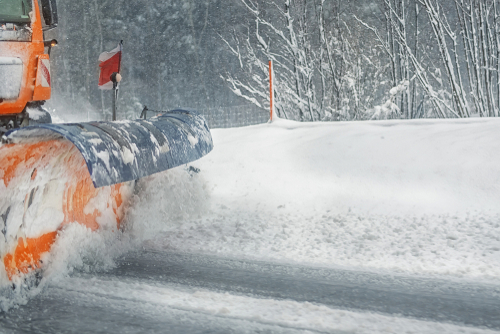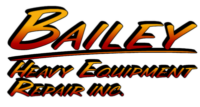Adapting to Winter Weather Challenges in Heavy Equipment Operations

Winter weather can present unique challenges for heavy equipment operators. From snow removal to dealing with icy surfaces, these conditions can greatly impact productivity and efficiency on job sites. However, by adapting work practices and utilizing specialized attachments and equipment modifications, operators can maximize productivity during the winter season. In this blog post, we will explore some valuable insights on how operators can navigate these challenges and ensure smooth operations in winter conditions.
Utilize Specialized Attachments
One effective way to adapt to winter weather challenges is by utilizing specialized attachments designed for snow removal and icy conditions. For example, snow blades and pushers can be attached to loaders or skid steers to efficiently clear snow from roads, parking lots, and other surfaces. These attachments are specifically designed to handle the weight and volume of snow, making the clearing process quicker and more effective. Similarly, ice scrapers and ice melt spreaders can be attached to equipment to tackle icy surfaces, preventing accidents and ensuring safe working conditions.
Equip Machines with Winter Tires or Tracks
Another important consideration is equipping heavy equipment with winter tires or tracks. Standard tires may not provide enough traction on slippery surfaces, potentially hindering productivity and safety. Winter tires are designed with specialized rubber compounds and tread patterns that offer improved grip on icy and snowy terrain. Additionally, some machines can be equipped with tracks instead of tires to enhance stability and maneuverability on uneven and slippery surfaces. Investing in these modifications can significantly enhance productivity and safety during winter operations.
Implement Safety Measures
Winter conditions often increase the risk of accidents and injuries on job sites. To adapt to these challenges, operators should prioritize safety measures to protect both themselves and others on site. This includes ensuring proper visibility by clearing snow from windshields, headlights, and cameras. Operators should also wear appropriate personal protective equipment (PPE), such as warm clothing, non-slip boots, and reflective gear, to maximize safety during winter operations. Additionally, it is essential to regularly inspect equipment for any maintenance issues that may be exacerbated by cold temperatures, such as frozen or malfunctioning hydraulic lines.
Consider Efficient Work Scheduling
Adapting work practices to winter weather conditions also involves considering efficient work scheduling. It is crucial to plan tasks according to weather forecasts and prioritize critical operations that need to be completed promptly. For example, if heavy snowfall is predicted, it may be more efficient to focus on snow removal before continuing with other tasks. By adjusting work schedules and focusing on weather-dependent operations, operators can optimize productivity while ensuring safety and efficient resource allocation.
Provide Operator Training
Winter conditions often require operators to adjust their operating techniques to safely and effectively navigate challenging terrain. Providing adequate training for operators on winter-specific challenges and best practices is crucial. This should include education on how to adapt equipment settings, such as adjusting the cutting edges of snow blades or utilizing lower ground speeds for better control. Operator training should also cover techniques for handling steep slopes, icy patches, or slippery surfaces to minimize the risk of accidents and equipment damage. By investing in comprehensive training, operators can enhance their skills and confidence when operating in winter weather conditions.
Perform Regular Maintenance and Inspections
Cold temperatures and harsh winter conditions can accelerate the wear and tear on heavy equipment. Therefore, performing regular maintenance and inspections is critical to keep machines running smoothly and avoid unnecessary breakdowns. Operators should check and lubricate all parts and components, including hydraulics, engine fluids, and electrical systems, on a regular basis. Special attention should be given to frost or ice buildup that can hinder equipment performance or cause safety hazards. By proactively addressing maintenance needs, operators can ensure that equipment operates at its best throughout the winter season.
Summary
Adapting to winter weather challenges in heavy equipment operations requires a combination of strategies and tools. By utilizing specialized attachments, equipping machines with winter tires or tracks, implementing safety measures, optimizing work scheduling, providing proper operator training, and performing regular maintenance and inspections, operators can navigate winter conditions with ease. By embracing these insights and adapting work practices, operators can maximize productivity and ensure safe and efficient operations, even in the most challenging winter weather conditions.
Need Heavy Equipment Repair in Lexington, OR?
Bailey Heavy Equipment Repair, Inc. is a family-owned and -operated heavy-duty equipment repair service based in Lexington, Oregon since 1984. We specialize in providing for all of your equipment repair needs, whether it’s farm equipment, utility equipment, trucks, cylinders, or something else entirely. We offer ANSI Inspections and Dielectric testing, field repair and on-site repair, line boring services, welding, machining, hose assemblies, steel sales, and other machine products. Give us a call today for more information!
